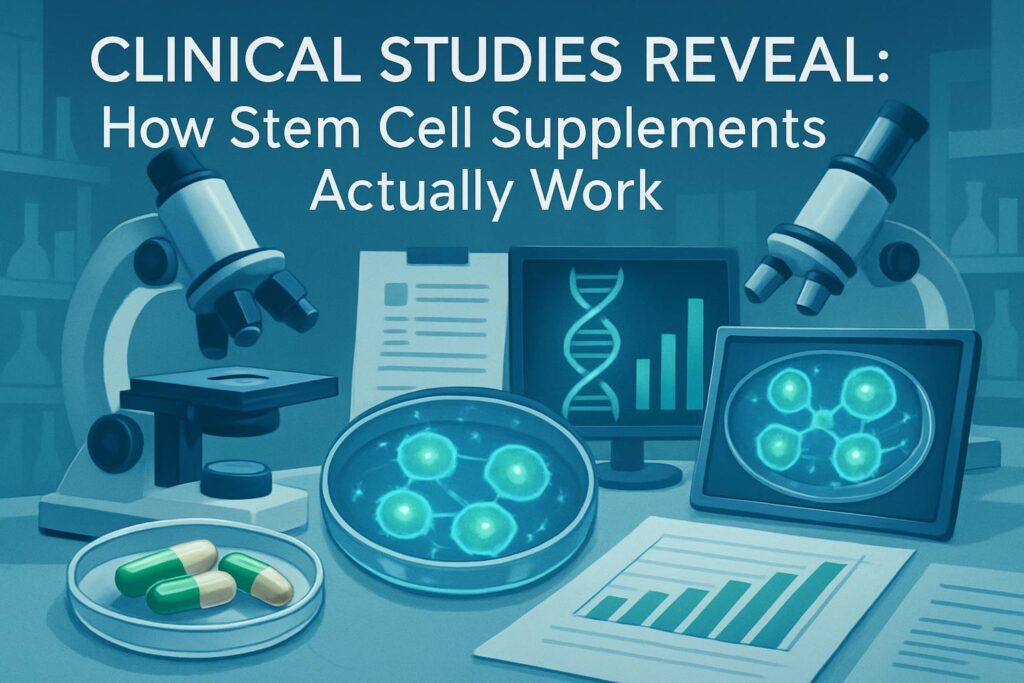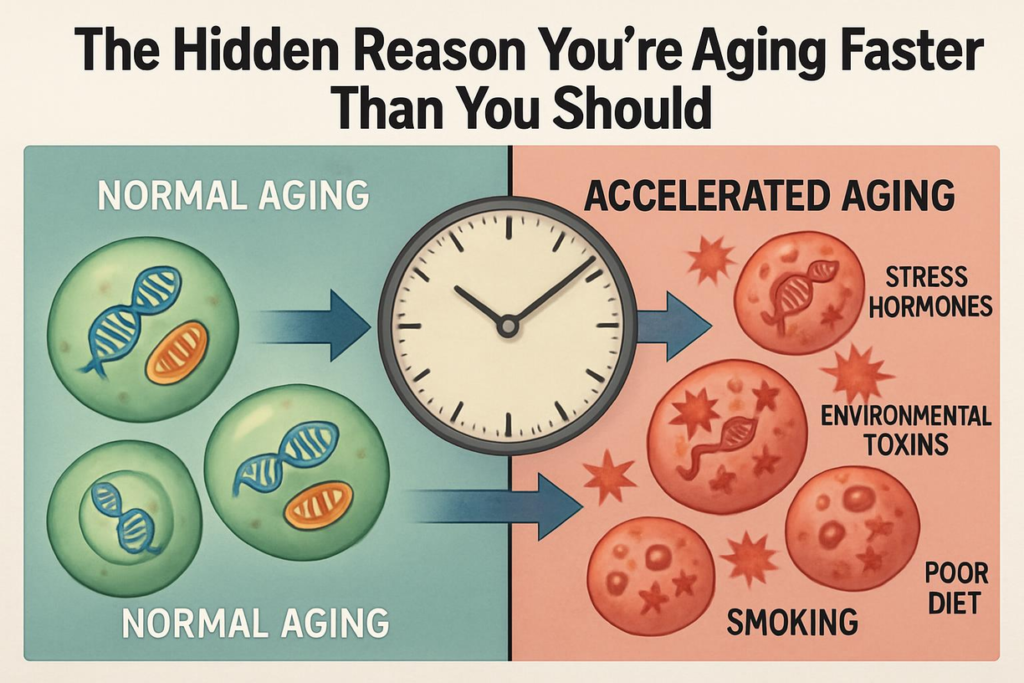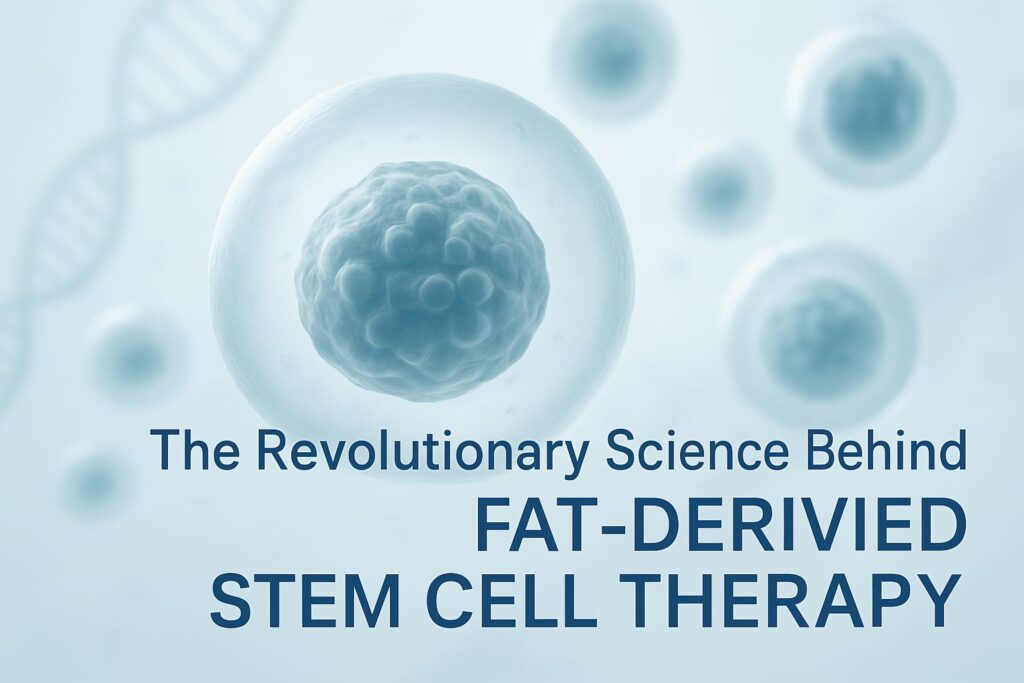Fasting has been known for centuries as a practice that brings numerous benefits to our health and well-being. But did you know that fasting can also have a profound effect on stem cell regeneration?
Recent research has revealed fascinating insights into the effects of fasting on stem cells, uncovering its potential to enhance regenerative medicine.
Studies conducted on both young and aged mice have shown that a 24-hour fast can significantly augment the function of intestinal stem cells (ISCs). This enhancement occurs through the induction of a fatty acid oxidation (FAO) program, which mimics the effects of fasting and plays a crucial role in enhancing ISC maintenance and regeneration.
By understanding the mechanisms behind fasting-induced improvements in stem cell function, scientists hope to develop strategies that can further enhance tissue regeneration.
Key Takeaways:
- Fasting can enhance the regenerative capacity of stem cells.
- A 24-hour fast has been shown to improve the function of intestinal stem cells in mice.
- The activation of a fatty acid oxidation program through fasting enhances stem cell maintenance and regeneration.
- Fasting may help reverse age-related stem cell decline and improve tissue regeneration in older individuals.
- Post-fast refeeding is crucial for stimulating stem cell proliferation and tissue regeneration.
The Role of Adult Stem and Progenitor Cells in Fasting
The role of adult stem and progenitor cells in responding to short-term fasting and the improvement of regeneration is not well-studied. However, recent research has shown that fasting promotes intestinal stem and progenitor cell function in both young and aged mice by inducing a robust fatty acid oxidation (FAO) program. This FAO program improves the regenerative capacity of these cells and has positive effects on tissue regeneration.
During fasting, stem cells undergo metabolic changes that enhance their regenerative abilities. The switch from carbohydrate metabolism to fatty acid oxidation stimulates stem cells to become more regenerative, allowing for improved tissue repair.
By activating a FAO program, fasting triggers a cascade of molecular events that enhance stem cell function. This program involves the activation of transcription factors called PPARs, which regulate the metabolic switch and promote stem cell regeneration.
Understanding the role of adult stem and progenitor cells in fasting-induced regeneration is essential for developing effective regenerative medicine strategies. By harnessing the regenerative potential of these cells, researchers and clinicians can explore novel therapeutic approaches to enhance tissue repair and combat age-related degeneration.
Fasting and Intestinal Stem Cells
One specific area of interest is the impact of fasting on intestinal stem cells (ISCs). The intestine is a highly regenerative organ, and ISCs play a crucial role in maintaining its function and repairing any damage. Age-related decline in ISC function can impair the intestine’s regenerative capacity, making it more difficult to recover from infections or other conditions.
Fasting has been found to significantly improve ISC function in both young and aged mice. Studies have shown that fasting increases the organoid-forming capacity of ISCs, which are miniature functional tissue structures derived from stem cells. This enhanced regenerative ability suggests that fasting can promote intestinal regeneration and improve ISC function, offering potential therapeutic opportunities for gastrointestinal disorders.
Molecular Mechanisms of Fasting-Induced Regeneration
The molecular mechanisms of fasting-induced regeneration involve the activation of various signaling pathways and metabolic switches. One key pathway is the fatty acid oxidation program, which is regulated by transcription factors such as PPARs.
Fasting triggers the activation of PPARs, which promote fatty acid oxidation in stem cells. This metabolic switch from carbohydrate metabolism to fatty acid metabolism enhances stem cell function and their regenerative capacity. Inhibition of the fatty acid oxidation pathway abolishes the regenerative effects of fasting, highlighting its importance in fasting-induced stem cell regeneration.
Furthermore, fasting induces changes in the expression of genes involved in stem cell function and tissue repair. These gene expression changes contribute to the enhanced regenerative abilities observed during fasting.
Table: Effects of Fasting on Stem Cell Function
| Effect | Description |
|---|---|
| Increased regenerative capacity | Fasting promotes the regenerative capacity of stem cells, allowing for improved tissue repair. |
| Enhanced metabolic switch | Fasting triggers a metabolic switch from carbohydrate metabolism to fatty acid oxidation, which enhances stem cell function. |
| Activation of PPARs | Fasting activates transcription factors called PPARs, which play a crucial role in regulating stem cell metabolism and function. |
| Modulation of gene expression | Fasting induces changes in gene expression that contribute to the enhanced regenerative abilities of stem cells. |
These findings highlight the complex interplay between fasting, stem cell function, and regeneration. By delving deeper into the molecular mechanisms underlying fasting-induced regeneration, researchers can uncover potential therapeutic targets for regenerative medicine.
Fasting and Intestinal Stem Cell (ISC) Function
Intestinal stem cells (ISCs) play a vital role in maintaining the health of the intestine by repairing any damage and replenishing the lining. However, as we age, the function of ISCs can decline, making it more challenging for the intestine to recover from infections or other conditions.
Fortunately, research has shown that fasting can have a significant impact on improving ISC function, not only in young mice but also in aged mice. This means that fasting can enhance the regenerative abilities of ISCs and promote intestinal regeneration.
One of the key benefits of fasting is its ability to increase the organoid-forming capacity of ISCs. Organoids are three-dimensional structures that closely resemble the original tissue and are used for studying stem cell behavior and tissue regeneration. By enhancing this capacity, fasting enables ISCs to generate new tissue and repair any damage more efficiently.
To illustrate the impact of fasting on ISC function, let’s take a look at the following table:
| Group | ISC Organoid-forming Capacity | Regenerative Abilities |
|---|---|---|
| Young Mice without Fasting | Normal | Good |
| Young Mice with Fasting | Enhanced | Improved |
| Aged Mice without Fasting | Reduced | Impaired |
| Aged Mice with Fasting | Improved | Enhanced |
This table clearly demonstrates the positive effects of fasting on ISC function. Both young and aged mice experience improvements in organoid-forming capacity and regenerative abilities when subjected to fasting.
Overall, fasting has the potential to be a valuable strategy for promoting intestinal regeneration and improving ISC function. By understanding the mechanisms behind these benefits, researchers can develop targeted approaches to enhance regenerative medicine and improve patient outcomes.
Molecular Mechanisms of Fasting-Induced Regeneration
Fasting-induced regeneration is a fascinating phenomenon that occurs in various tissues, including the intestine. To understand the molecular mechanisms behind this process, researchers have explored the role of fatty acid oxidation (FAO) and transcription factors called peroxisome proliferator-activated receptors (PPARs) in fasting-induced regeneration.
During fasting, the activation of PPARs leads to the induction of a FAO program in intestinal stem cells (ISCs). This metabolic switch from carbohydrate metabolism to fatty acid metabolism plays a crucial role in enhancing ISC function and their regenerative capacity.
The activation of PPARs and subsequent FAO program stimulate the stem cells to become more regenerative. This metabolic shift provides the necessary energy for ISCs to support tissue repair and regeneration.
Further insights into the molecular mechanisms of fasting-induced regeneration have revealed that inhibiting the FAO pathway abolishes the regenerative effects of fasting. This underscores the importance of the metabolic switch and FAO program in facilitating the regenerative process.
Understanding these molecular mechanisms not only sheds light on the intricate processes that occur during fasting-induced regeneration but also has significant implications in regenerative medicine. By unraveling the complexities of this metabolic switch and its downstream effects, scientists can explore potential therapeutic approaches for enhancing tissue regeneration in various contexts.
The table below summarizes the key molecular mechanisms involved in fasting-induced regeneration:
| Molecular Mechanism | Role |
|---|---|
| Activation of PPARs | Induces a fatty acid oxidation (FAO) program in ISCs |
| Switch from carbohydrate metabolism to fatty acid metabolism | Stimulates stem cells to become more regenerative |
| Inhibition of FAO pathway | Abolishes the regenerative effects of fasting |
Fasting-induced regeneration is a complex process governed by these molecular mechanisms. By deciphering the intricacies of this phenomenon, researchers are paving the way for innovative approaches in regenerative medicine that harness the potential of fasting to enhance tissue repair and regeneration.
Fasting and Age-Related Stem Cell Decline
Aging is a natural process that is associated with a decline in stem cell numbers and function, leading to impaired tissue regeneration. However, emerging research suggests that fasting can reverse age-related stem cell decline and improve the regenerative capacity of stem cells in various tissues.
One area where fasting has shown promising results is in the intestine. Fasting has been found to enhance the function of intestinal stem cells (ISCs) in both young and aged individuals. These ISCs are responsible for maintaining the lining of the intestine and repairing any damage. As we age, the decline in ISC function can make it more difficult for the intestine to recover from infections or other conditions.
By incorporating fasting into our lifestyles, we can potentially mitigate age-related stem cell decline and promote tissue regeneration. Fasting may stimulate dormant stem cells, enhancing their regenerative abilities and replenishing their numbers. This can lead to improvements in tissue repair and overall health.

The Potential of Fasting in Enhancing Tissue Regeneration
Fasting holds great promise in the field of regenerative medicine, as it has the potential to enhance tissue regeneration and improve overall health. By targeting age-related stem cell decline, fasting may offer a natural and accessible strategy to promote regeneration in older individuals.
Studies have shown that fasting can enhance the regenerative capacity of stem cells in various tissues, including the intestine. By improving ISC function and promoting the activation of dormant stem cells, fasting may help counteract the effects of aging on tissue regeneration.
| Tissue | Effect of Fasting |
|---|---|
| Intestine | Enhances ISC function and stimulates regeneration |
| Brain | Promotes neurogenesis and improves cognitive function |
| Muscles | Induces muscle stem cell activation and enhances repair |
| Liver | Stimulates liver stem cell proliferation and regeneration |
By understanding the mechanisms by which fasting improves stem cell function, we can uncover potential strategies for enhancing tissue regeneration. This knowledge may inform the development of targeted therapies that harness the regenerative potential of stem cells to combat age-related decline and promote overall well-being.
Fasting and Cancer Patients
Fasting can have beneficial effects for cancer patients undergoing chemotherapy, as it has the potential to enhance the regenerative capacity of stem cells. Chemotherapy often harms intestinal cells, and fasting has been found to stimulate regeneration without requiring patients to fast. This means that patients can still receive the necessary nutrition while benefiting from fasting-induced regeneration.
The regenerative effects of fasting in cancer patients are due to the activation of the same metabolic switch that occurs during fasting. This metabolic switch triggers a metabolic pathway called fatty acid oxidation (FAO), which improves the function of stem cells and enhances their regenerative capacity. By activating this metabolic switch, drug treatments could potentially stimulate regeneration in cancer patients without increasing the risk of cancer progression.
Integrating fasting and regenerative medicine in the treatment of cancer and other gastrointestinal disorders holds great promise. It not only allows patients to maintain their nutritional intake but also harnesses the regenerative power of fasting to potentially enhance recovery and improve patient outcomes.
Benefits of Fasting for Cancer Patients:
- Enhances the regenerative capacity of stem cells
- Stimulates tissue regeneration without fasting
- Potential to improve cancer patient outcomes
Role of Fatty Acid Oxidation (FAO) in Fasting:
Fasting activates the FAO pathway, which triggers a metabolic switch in stem cells. The FAO pathway enhances stem cell function and their ability to regenerate tissue.
| Benefit | Explanation |
|---|---|
| Enhanced regenerative capacity | Fasting activates the metabolic switch, increasing the regenerative potential of stem cells. |
| External nutrition support | Cancer patients can still receive necessary nutrition while benefiting from fasting-induced regeneration. |
| Potential for improved outcomes | Integrating fasting and regenerative medicine may lead to enhanced recovery and improved patient outcomes. |
Post-Fast Refeeding and Stem Cell Proliferation
Post-fast refeeding is a crucial phase that follows a period of fasting and plays a significant role in stimulating stem cell proliferation and tissue regeneration. Research has shown that after a 24-hour fast, stem cells in the intestine exhibit a greater organoid-forming capacity, indicating their enhanced regenerative potential.
During the post-fast refeeding period, stem cells experience an increased availability of nutrients, which fuels their proliferation and promotes the formation of organoids. Organoids are 3D structures that mimic the composition and function of organs, making them valuable models for studying tissue regeneration and disease.
This enhanced stem cell proliferation and organoid-forming capacity observed after refeeding demonstrates the crucial role of the post-fast phase in stimulating tissue regeneration. By replenishing the nutrient supply, refeeding provides the necessary resources for stem cells to divide and differentiate, leading to the restoration of damaged tissues or the growth of new ones.
This phenomenon highlights the potential of incorporating post-fast refeeding into regenerative medicine strategies. By manipulating the timing and composition of the refeeding period, researchers may be able to optimize stem cell proliferation and organoid formation, which can have significant implications for tissue repair and regeneration therapies.
Benefits of Post-Fast Refeeding:
- Stimulates stem cell proliferation
- Promotes the formation of organoids
- Enhances tissue regeneration
- Provides resources for stem cell division and differentiation
- Potential for optimizing regenerative medicine strategies
Metabolic Switch in Stem Cells during Fasting
Fasting has a remarkable effect on stem cells by inducing a metabolic switch that alters their energy source. Normally, stem cells utilize carbohydrates for energy. However, during fasting, stem cells switch to burning fatty acids through a process known as fatty acid oxidation (FAO).
This metabolic switch is triggered by the activation of PPAR (peroxisome proliferator-activated receptor) transcription factors. These transcription factors play a pivotal role in enhancing stem cell function and promoting their regenerative abilities.
By promoting fatty acid oxidation, fasting improves the regenerative capacity of stem cells. Fatty acids provide a more efficient energy source for stem cells, enabling them to perform their regenerative functions more effectively.
A visual representation of the metabolic switch in stem cells during fasting:
Fasting, Refeeding, and Tumorigenesis
While fasting and post-fast refeeding have positive effects on stem cell proliferation and regenerative capacity, they can also increase the risk of tumorigenesis. Studies have shown that post-fast refeeding can lead to a higher tumor incidence in the small intestine and colon compared to fasting or ad libitum feeding.
The mechanistic link between fasting-refeeding cycles and tumor formation involves the activation of mTORC1 in stem cells, which increases protein synthesis and drives tumorigenesis. Careful consideration of fasting-refeeding cycles is necessary when planning diet-based strategies for regeneration without increasing cancer risk.
Conclusion
Fasting has emerged as a powerful tool for enhancing stem cell regeneration in various tissues, offering promising implications for regenerative medicine. Studies have demonstrated that both intermittent fasting and post-fast refeeding can stimulate stem cell proliferation and improve their regenerative abilities, providing a potential avenue for tissue repair and maintenance.
Understanding the molecular mechanisms underlying fasting-induced regeneration is key to unlocking its full potential. By elucidating the intricate pathways involved, researchers can pave the way for innovative regenerative medicine strategies that harness the benefits of fasting.
While fasting shows great promise, further research is needed to explore its therapeutic applications in enhancing tissue regeneration and mitigating age-related stem cell decline. By leveraging the insights gained, scientists can develop targeted interventions that capitalize on fasting’s regenerative effects, ultimately improving health outcomes and quality of life.
FAQ
Does fasting affect stem cells?
Yes, fasting has been found to have a profound effect on tissue regeneration and can enhance the regenerative capacity of stem cells.
How does fasting improve stem cell function?
Fasting induces a metabolic switch in stem cells, causing them to switch from utilizing carbohydrates to burning fatty acids. This metabolic switch enhances stem cell function and their ability to regenerate.
Can fasting boost intestinal stem cell function?
Yes, fasting has been shown to significantly improve the function of both young and aged intestinal stem cells (ISCs), enhancing their regenerative capacity and promoting intestinal tissue regeneration.
What are the molecular mechanisms behind fasting-induced regeneration?
Fasting induces a fatty acid oxidation (FAO) program in stem cells through the activation of transcription factors called PPARs. This FAO program improves stem cell function and their regenerative capacity.
Can fasting reverse age-related stem cell decline?
Yes, fasting has been found to reverse age-related decline in stem cell numbers and function, enhancing the regenerative capacity of stem cells in various tissues.
How can fasting benefit cancer patients?
Fasting may have beneficial effects for cancer patients undergoing chemotherapy, as it can enhance the regenerative capacity of stem cells and stimulate tissue regeneration without increasing cancer risk.
Does post-fast refeeding affect stem cell proliferation?
Yes, post-fast refeeding has been shown to increase stem cell proliferation, leading to enhanced regenerative abilities and increased organoid-forming capacity.
What is the metabolic switch that occurs during fasting?
Fasting causes a switch in stem cells’ metabolism from carbohydrates to burning fatty acids, which plays a crucial role in enhancing their function and regenerative capacity.
Can fasting and refeeding cycles increase the risk of tumor formation?
Yes, studies have shown that fasting-refeeding cycles can increase the risk of tumor formation in the small intestine and colon due to the activation of mTORC1 in stem cells. Careful consideration is necessary when planning diet-based regeneration strategies.
How can fasting and regenerative medicine be utilized together?
Fasting has significant effects on stem cell regeneration and can enhance the regenerative capacity of stem cells in various tissues. Understanding the mechanisms behind fasting-induced regeneration can provide valuable insights for developing regenerative medicine strategies.



